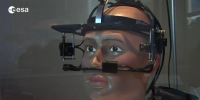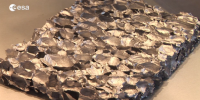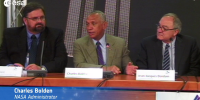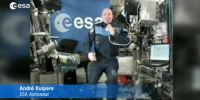Editor’s note:These brief extracts are paraphrased from live webcast and may not be fully correct.
Millie Hughes-Fulford, Scientific Advisor to the Undersecretary of the Department of Veterans Affairs and Professor at the University of California, San Francisco
Download the full presentation: Biology & Biotechnology – M. Fulford-Hughes
If people ask why research in space, it is best to turn the question around: how many people would not be here if scientific curiosity in bacteria was not kindled, eventually leading to the development of antibiotics? Basic science leads to knowledge, and that knowledge leads to benefits for humankind.
- Research on ISS is like solving equations in maths. If you take away an unknown variable you can solve the equation. On the Space Station the variable taken away is gravity.
- Challenges to spaceflight on human health are many: bone loss, fluid distribution, weaker immune systems.
- T-cells that are part of you immune system and react to invading cells, warning the body of an threat. T-Cells work less well in microgravity, they do not react as they would on Earth.
- The last revolution in medicine was drugs that react with the immune systems cells on a molecular level. New development miRNAs, ill treat diseases at a level closer to the source of the immune system, individually adapted to patients’ immune systems.





Discussion: one comment
Hey! This post couldn’t be written any better! Reading through this post reminds me of my good old room mate! He always kept talking about this. I will forward this article to him. Fairly certain he will have a good read. Many thanks for sharing!